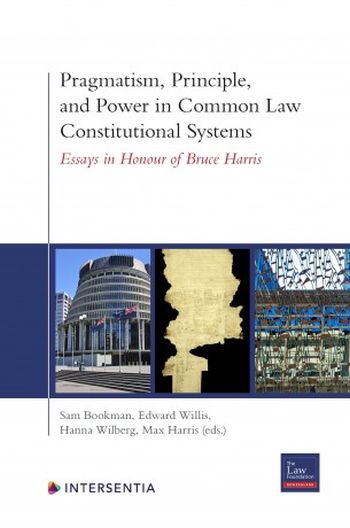
Professor Bruce Harris has left an indelible mark on public law in New Zealand and across the common law world. In particular, his suggestion that there exists a ‘third source’ of executive action, in addition to statutory and prerogative powers, has influenced scholarship and judicial decisions in New Zealand, the United Kingdom, and elsewhere.
Three sections discuss issues concerning the judiciary. In the first section, Nicola Wheen discusses the problems inherent in ambiguous standards of environmental protection. The second section deals with judicial method and creativity. John Ip argues that the remedy of declarations of inconsistency with enumerated rights amounts to justifiable judicial creativity; Taylor Burgess critiques courts’ unwillingness to lead social change, while Paul Rishworth examines the creativity inherent in judicial restraint. Caroline Foster extends the volume’s analysis to international law, arguing that creativity by international courts and tribunals has given rise to global regulatory standards. The third section addresses judicial appointment and accountability. Sir Edmund Thomas argues that more independence is required in judicial appointments’ processes, while ATH Smith argues that more protections are needed to protect judicial independence.
The final theme concerns the future of the unwritten constitution. John Dawson explores the place of Te Tiriti o Waitangi (the Treaty of Waitangi), the founding agreement between the Crown and Māori, in New Zealand’s constitutional arrangements. Paul Craig explores the difference in the modalities of constitutional change between written and unwritten constitutions. Finally, Sam Bookman discusses the role of constitutional scholars in the unwritten constitution.
As courts and legislatures around the world grapple with the changing demands made of public law, this volume addresses important questions about the powers of the state, the role of judges, and Crown-Indigenous relations. This book engages with these questions through a distinctive approach that is both pragmatic and nuanced. This volume is indispensable for students, scholars and practitioners engaged in the study of common law constitutions in New Zealand and beyond.